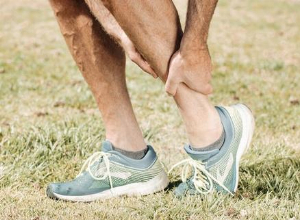What is animal-assisted therapy?
Published 6 Apr 2021 • By Candice Salomé
Animal assisted therapy, also called zootherapy, is a set of non-conventional therapeutic methods that use the proximity of an animal to a person living with a physical, social or mental disorder. These methods help to reduce stress or the consequences of medical treatment, among other things.
But what is animal-assisted therapy? What are the benefits of this therapy? Which animals are most likely to cooperate with therapy sessions? For whom is it recommended? What is the role of the animal therapist?
We tell you everything in our article!

What is animal-assisted therapy?
Animal-assisted therapy (AAT) is a programme of care or interventions that a therapist provides to a patient with the help of an animal.
This type of therapy aims to improve (or in some cases maintain) the health of people with psychological, social, physical or cognitive disorders.
This method, though it also falls under the realm of Animal Assisted Intervention, is different from what is known as animal assisted activities (AAA), as the latter refers to the use of animals in recreational and visitation programmes to motivate, educate or entertain people in various contexts - school, prison or other - and does not have specifically therapeutic aims.
In the UK, animal-assisted therapy is currently most often practiced in medical and care settings.
What are the benefits of animal-assisted therapy?
The therapeutic power of animal-assisted therapy stems from the human-animal relationship which helps to improve self-esteem and meet emotional and psychological needs. For example, feeling unconditionally loved, feeling useful or having a link and connection with nature.
Overall, the main principle of animal therapy is that the relationship between a human being and an animal contributes to the improvement of mental, physical or psychological health. Animal assisted therapy can help to:
- View life in a more optimistic way,
- Reduce stress,
- Overcome a difficult period following a psychological or emotional shock,
- Lower blood pressure related to a state of stress,
- Ease interaction with others,
- Get out of isolation,
- Help with relaxation...
The presence of an animal can also modify an individual's behaviour and serve as a projection tool. In psychotherapy, a patient who perceives sadness or anger in the animal's gaze may actually be projecting his or her own inner feelings onto the animal.
Which animals can help in animal-assisted therapy?
Not all animals are suitable for animal-assisted therapy. Domestic animals are mainly used.
 Cats, for example, are known to be very soothing. When they purr, our stress levels decrease. As a sedentary and independent animal, it is in great demand in retirement homes.
Cats, for example, are known to be very soothing. When they purr, our stress levels decrease. As a sedentary and independent animal, it is in great demand in retirement homes. Dogs are chosen for the emotional aspect they represent and the strong attachment humans can have with them. Moreover, their ability to share activities with humans (walks, throwing balls, etc.) makes them a real asset for animal-assisted therapy.
Dogs are chosen for the emotional aspect they represent and the strong attachment humans can have with them. Moreover, their ability to share activities with humans (walks, throwing balls, etc.) makes them a real asset for animal-assisted therapy. Horses are used for physical rehabilitation, motor skills, neuromuscular functions, balance and coordination. Riding a horse requires a lot of posture work, so you need to be aware of your body. This is known as equine-assisted therapy.
Horses are used for physical rehabilitation, motor skills, neuromuscular functions, balance and coordination. Riding a horse requires a lot of posture work, so you need to be aware of your body. This is known as equine-assisted therapy.
What happens during an animal-assisted therapy session?
Animal-assisted therapy sessions last on average 1 hour. They can be individual or in a small group (4 to 5 people maximum) in order to get the attention and concentration of each participant and to be able to set up an adaptive programme.
Each session is different. The objectives of each participant will be established beforehand in collaboration with the members of the care team (or with the family) as part of a personalised support project.
It is difficult to describe the precise content of an AAT session as it varies according to the participants (the wants, mood, personality and issues of each person).
The possibilities are many: grooming, games, relaxation, training, walks, agility...
Participants will be able to express their feelings and emotions in words, thus offering them a place to listen and be attentive.
What is the role of the animal therapist?
The title of animal therapist is neither protected nor legally recognised. Generally speaking, the animal therapist has a background in health or in helping people (physiotherapy, nursing, occupational therapy, medicine, psychology, etc.). They also have a specialisation that allows them to work with animals (training in animal behaviour).
Was this article helpful to you?
Share your thoughts and questions with the community in the comments below!
Take care!

 Facebook
Facebook Twitter
Twitter





